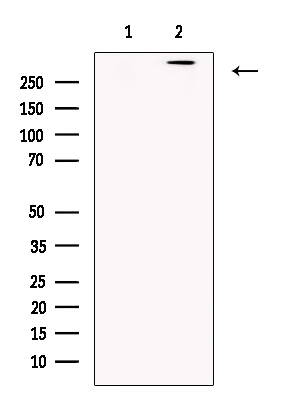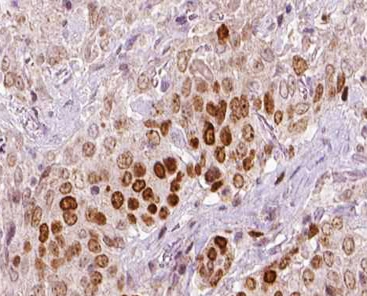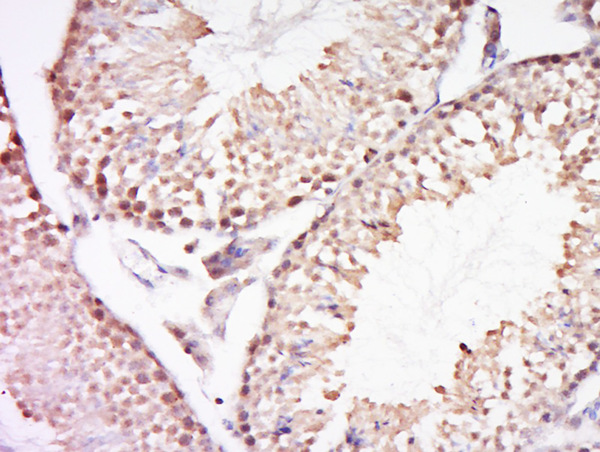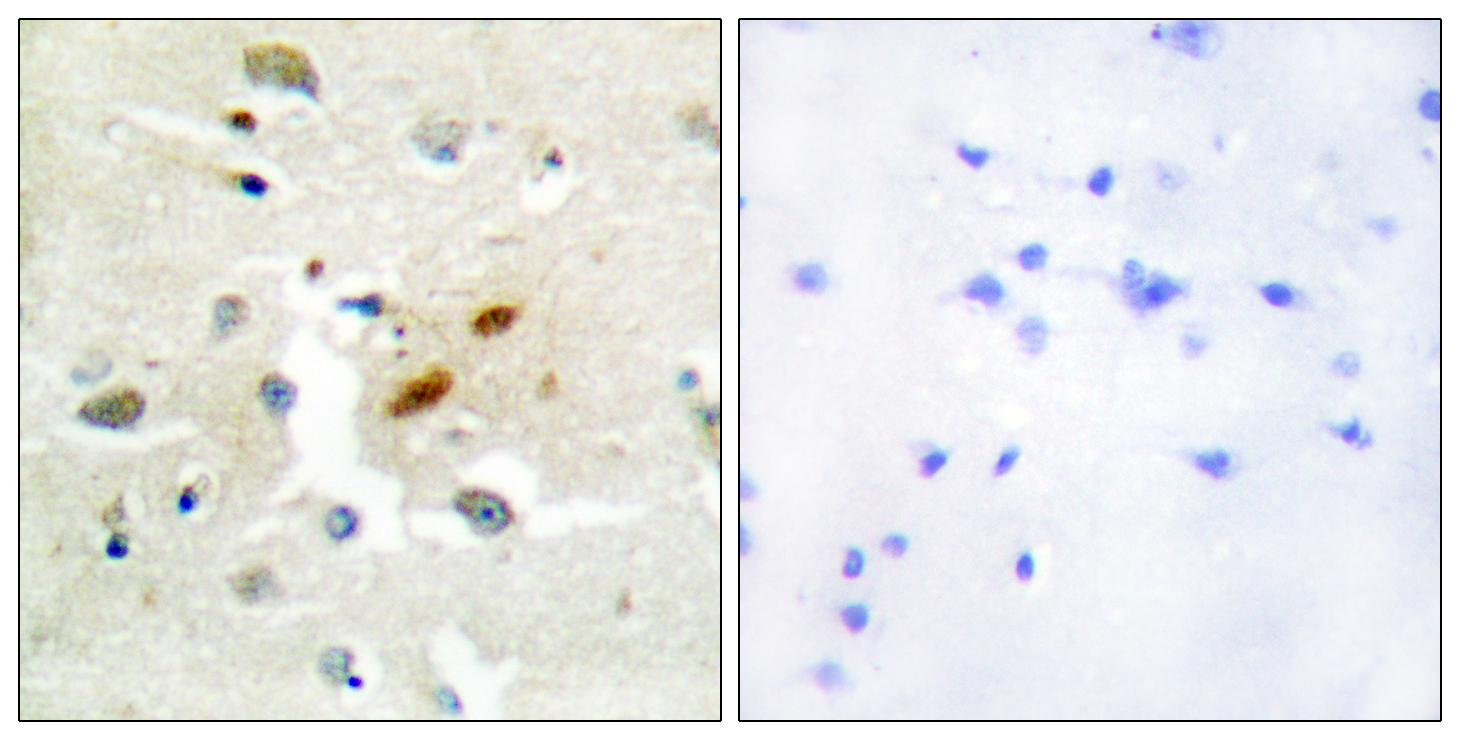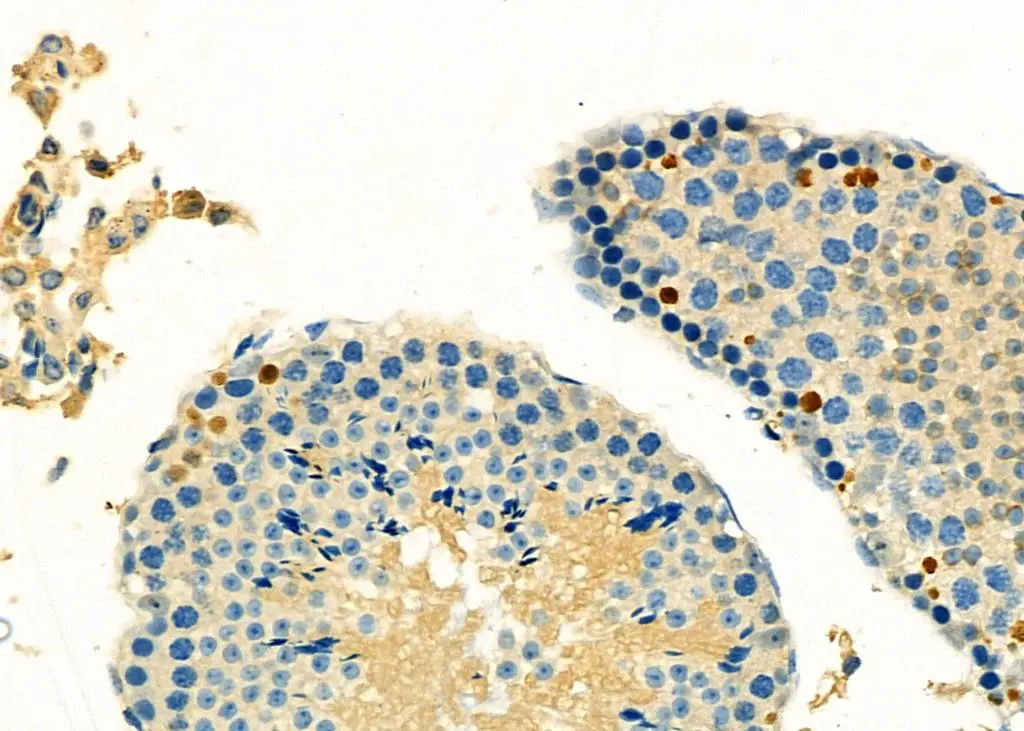
IHC-P analysis of mouse testis tissue using GTX02533 REV3L antibody. Antigen retrieval : Heat mediated antigen retrieval step in citrate buffer was performed. Dilution : 1:100
REV3L antibody
GTX02533
ApplicationsWestern Blot, ImmunoHistoChemistry, ImmunoHistoChemistry Paraffin
Product group Antibodies
ReactivityHuman, Mouse
TargetREV3L
Overview
- SupplierGeneTex
- Product NameREV3L antibody
- Delivery Days Customer9
- Application Supplier NoteWB: 1:500-1:2000. IHC-P: 1:50-1:200. *Optimal dilutions/concentrations should be determined by the researcher.Not tested in other applications.
- ApplicationsWestern Blot, ImmunoHistoChemistry, ImmunoHistoChemistry Paraffin
- CertificationResearch Use Only
- ClonalityPolyclonal
- Concentration1 mg/ml
- ConjugateUnconjugated
- Gene ID5980
- Target nameREV3L
- Target descriptionREV3 like, DNA directed polymerase zeta catalytic subunit
- Target synonymsPOLZ, REV3, DNA polymerase zeta catalytic subunit, REV3-like, polymerase (DNA directed), zeta, catalytic subunit, Rev-3, yeast, homolog-like (polymerase, DNA, zeta)
- HostRabbit
- IsotypeIgG
- Protein IDO60673
- Protein NameDNA polymerase zeta catalytic subunit
- Scientific DescriptionThe protein encoded by this gene represents the catalytic subunit of DNA polymerase zeta, which functions in translesion DNA synthesis. The encoded protein can be found in mitochondria, where it protects DNA from damage. Defects in this gene are a cause of Mobius syndrome. [provided by RefSeq, Jan 2017]
- ReactivityHuman, Mouse
- Storage Instruction-20°C or -80°C,2°C to 8°C
- UNSPSC12352203

